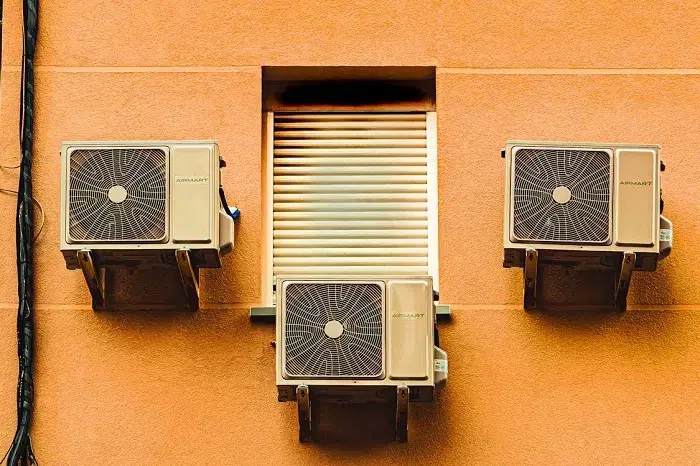Technology
Rising Trends in HVAC Technology

Imagine your home adjusting the temperature before you even think about it. That’s where HVAC tech stands in 2024, and this is becoming pretty popular.
New innovations change how we stay cool and warm, from smart thermostats to eco-friendly systems. And there’s a growing focus on training for these cutting-edge advancements.
Curious about what’s new? Dive into energy efficiency trends and smarter control options shaping our future comfort. Read on to see how the latest developments could affect you, whether at home or work.
1. Integration of AI and Machine Learning in HVAC Systems
In perhaps what many would consider a deserving hype, artificial intelligence is changing industries. And if your guess is as good as anyone’s, HVAC systems are no exception. These technologies can analyze patterns in your energy use, predicting when to adjust settings for optimal comfort and efficiency.
Machine learning fine-tunes performance by learning from past data. Your system might detect that you prefer cooler mornings or recognize maintenance needs before issues arise. This seamless automation means less manual control for you while maximizing savings and ensuring consistent climate control throughout your space.
2. Eco-Friendly Refrigerants Revolutionizing Cooling
The growing need for sustainable solutions drives the push toward eco-friendly refrigerants in HVAC systems. Traditional refrigerants often harm the environment, contributing to global warming and ozone depletion.
New alternatives, like hydrofluoroolefins (HFOs), offer a lower global warming potential while maintaining efficiency. These refrigerants are safer for both people and the planet.
Adopting these innovations means cutting down on greenhouse gas emissions without sacrificing performance. As regulatory standards tighten globally, more industries pivot to these greener options, making a significant environmental impact with every system upgrade.
3. Cutting-Edge Training Programs for Emerging HVAC Technologies
Educational spheres around the HVAC industry haven’t been left behind either. Many training programs now incorporate modern technologies, ensuring technicians stay ahead of the curve. Advanced curriculums cover everything from smart thermostats to energy-efficient systems.
By offering hands-on experience with new tech, these programs equip future professionals with critical skills needed in today’s market.
Take the HVAC school at Pennco Tech as an example. They offer comprehensive training that aligns perfectly with emerging and rising technologies, setting students up for success in this ever-evolving field.
4. The Role of IoT in Optimizing Climate Control
Your HVAC system is now a part of the Internet of Things (IoT). These interconnected devices communicate seamlessly, enhancing climate control efficiency.
Smart sensors track temperature, humidity, and occupancy patterns, automatically adjusting settings for optimal comfort. This real-time data not only boosts performance but also slashes energy costs.
Embracing IoT means more intelligent and responsive HVAC solutions that cater to your specific needs effortlessly.
5. Advanced Filtration Techniques for Better Air Quality
The air you breathe can significantly impact your health, and much of it passes through the HVAC system. Modern air filters now use advanced technologies to remove pollutants more effectively.
Key features include:
- High-efficiency particulate air (HEPA) filters
- Ultraviolet (UV) light purifiers
- Activated carbon filters
These advancements capture allergens, bacteria, and even odors. Enhanced filtration means cleaner, healthier indoor environments, making your living spaces safer and more comfortable.
6. Renewable Energy Sources Powering HVAC Solutions
Again on sustainability, renewable energy sources are transforming HVAC systems. Integrating solar and geothermal power offers cleaner, cost-effective options.
Key benefits include:
- Reduced carbon footprint
- Lower operating costs
- Enhanced system efficiency
By tapping into these resources, HVAC solutions become more eco-friendly and resilient against fluctuating energy prices. This shift not only supports environmental goals but also provides reliable performance. It ensures long-term savings and sustainability for residential and commercial users alike.
HVAC technology is rapidly evolving. It’s revolutionizing not just how we control temperature in our environments but also how much energy is consumed in the process. The advancements above enhance comfort and efficiency while also contributing to sustainability goals. And from the look of things, we can expect even more groundbreaking developments in the future.






















































